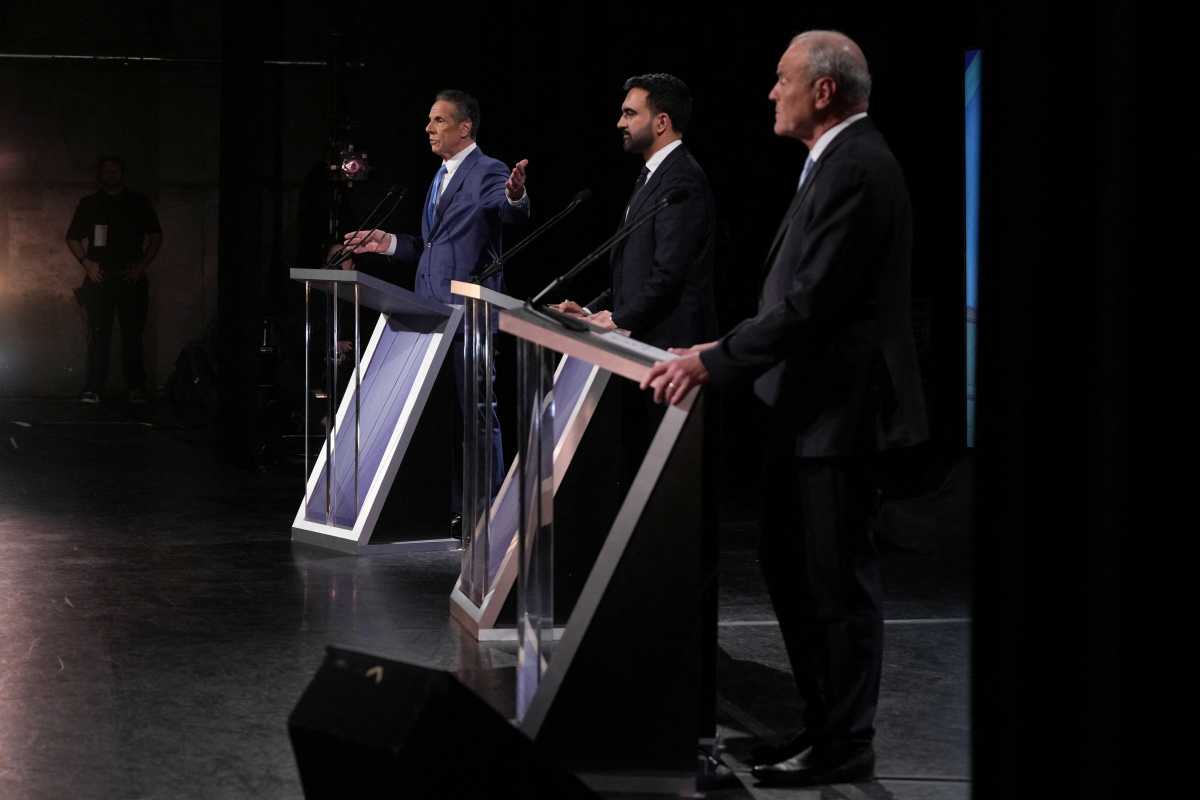In a bold move during the final NYC mayoral debate on October 22, 2023, Democratic nominee Zohran Mamdani brought two women who previously accused former Governor Andrew Cuomo of sexual harassment to the audience. This decision aimed to highlight the ongoing controversy surrounding Cuomo, who has consistently denied the accusations. The debate, held at LaGuardia Community College in Long Island City, has reignited discussions about the ethical implications of using personal claims in political contests.
Mamdani invited Charlotte Bennett and Karen Hinton as guests, both of whom were central to the scandal that led to Cuomo’s resignation in August 2021. The former governor stepped down amid increasing scrutiny and threats of impeachment due to the allegations, which remain unresolved in civil or criminal courts. During the debate, Mamdani directed a question at Cuomo, emphasizing Bennett’s presence and her inability to speak out due to the legal action Cuomo has taken against her. “She cannot speak up for herself, because you lodged a defamation case against her,” Mamdani stated, underscoring the impact of Cuomo’s legal strategy.
Cuomo responded by asserting that the allegations had been litigated without any legal findings against him. “If you want to be in government, then you have to be serious and mature,” he said, characterizing Mamdani’s approach as an attempt to distract from substantive issues.
The strategy of inviting accusers to a debate has drawn both praise and criticism. Some observers argue that it serves to hold candidates accountable, while others view it as a political maneuver that overshadows important policy discussions. Jaci Clement, CEO of the Fair Media Council, expressed concern about the implications of such tactics. “Accountability is essential, but so is fairness,” she noted. “When candidates use accusations as a campaign tactic, it can be seen as exploiting the victim on one end of the spectrum and as political theater on the other.”
The context of Cuomo’s administration is critical, as investigations led by New York State Attorney General Letitia James in 2021 concluded that Cuomo harassed 11 women, including Bennett. Although no legal findings were upheld, the investigation significantly impacted Cuomo’s political career. Following his resignation, James briefly considered a gubernatorial run but later opted for re-election in 2022.
In the wake of the debate, a spokesperson for Cuomo dismissed Mamdani’s approach as a “stunt.” Rich Azzopardi, a representative for Cuomo, criticized Mamdani’s tactics, stating, “If you want to be mayor, you have to be serious. It’s not just stunts.” He characterized Mamdani’s focus on Bennett as a tactic born from a lack of substantive policy proposals.
Azzopardi also pointed out that Mamdani’s past statements regarding the New York Police Department could reflect poorly on his candidacy, suggesting that Cuomo’s track record in office should take precedence in discussions. “The governor’s record is relevant. Mamdani doesn’t have a record,” he said, emphasizing the importance of accountability in political discourse.
The practice of bringing accusers to public forums has historical precedent, as seen during the 2016 presidential campaign when Donald Trump included women who accused former President Bill Clinton of sexual misconduct in a debate setting. Such instances raise questions about the balance between accountability and political strategy.
As the NYC mayoral race nears its conclusion, the implications of Mamdani’s actions will likely resonate beyond the debate stage. The tension between personal claims and political strategy remains a contentious issue, underscoring the complex dynamics of modern electoral politics. The upcoming election will ultimately determine how voters perceive these tactics and whether they influence the outcome of a race marked by significant historical context and ethical considerations.








































































